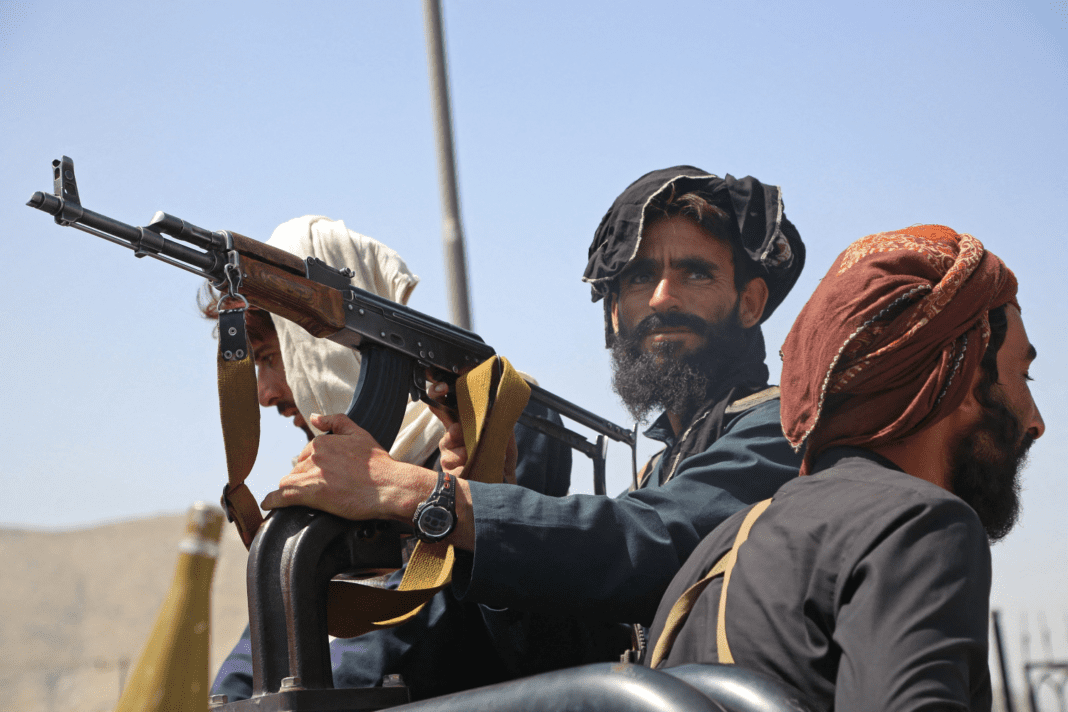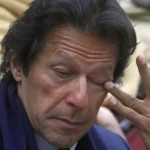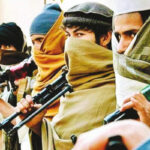People are coming to very faulty conclusions as events unfold in Afghanistan. The Taliban are being painted as an invincible force and why not. They own the moment and are living it. At present, they ride the crest and have bragging rights. Yet, it was these very same Taliban who vanished in 2001 because they realized they could never have faced the onslaught that they saw coming their way. They could not stand ground and defend what was then in their possession, being effectively routed when under pressure.
They were far better prepared then, amply warned and more deeply entrenched than they are now, armed with a far more committed faith at the time. So, what has changed after 20 years, is the question people are asking.
Most do not understand the nuances of tribal warfare – when a tribe realises that it lacks capacity to acquire an objective or sustain it; if they acquire it, they quietly withdraw, allowing their enemy to possess it. It is not defeat but a sustained grudge and must never be misconstrued to be forgotten or forgiven. It’s simply how tribal warfare has always been fought, executed and prosecuted. The tribe waits, and has the patience to wait for even a thousand years, to gain capacity and wherewithal to once again acquire the objective they lost.
The underlying principle here is, the tribe never – never, forgets.
A famous anecdote illustrates this matter and it goes like this: in 1947, the last Political Agent was holding his farewell Darbar in the Frontier Regions of Dera Ismail Khan. The Political Agent was respected far and wide, had a very good reputation amongst the tribesmen and was wholly accepted by all. Yet, during his last address, a young boy in his early teens, walked into the Darbar and pulled out a .303 rifle from under his chador and before anyone had time to react or respond, he shot the Political Agent. The boy when taken into custody and questioned as to why did he do such a thing, he said, “My father was killed by the British and my mother told me that the British are leaving, if this Political Agent leaves, and there are no Englishmen left here, how will you exact revenge for your father, and we shall be destined to live in disgrace forever?”
As such, in keeping with tribal tradition, the mainstay of the Taliban sweep across Afghanistan was a consequence of patience, the art of waiting it out, honed and developed to a fault. The tribes have evolved patience into a principle of war, which conventional warfighting neither understands or recognises. A lesson that the west has never learnt at their own peril.
The Taliban having concluded that the West could never effectively govern Afghanistan for any given time, they continually engaged them in a conflict of attrition impacting on the Coalition’s respective national treasure, resource and lives. It was a question of time before ISAF would have to decide to withdraw or suffer the consequences of a no-win no-lose war. The Taliban waited for the moment – 20 years in the making. Pashtun culture, custom and tradition welcomes aliens with a famous warning, “You may have the watches but it is we who have the time.”
It was always very clear that the United States would eventually have to leave Afghanistan. Yet, if the US had not left the way that they did; irresponsibly, in indecent haste and without a plan, the Taliban advance could have been more graduated, incremental and progressive, allowing the Taliban to organise a structured change of authority in Afghanistan. The Taliban advance, seen in the current context, is a product of a vacuum created by a US hasty withdrawal and a sudden Afghan Government collapse. This has put the Taliban leadership into a difficult situation where a near anarchy exists in Afghanistan and the propaganda mills are churning our conspiracies and stories to defame the Taliban as much as possible. Criminal elements are running amok, taking advantage of the overall situation and giving a bad name to the Taliban. On the other hand, the spectacular sweep of the Taliban forces is creating a perception of extra-ordinary proportions allowing ultra-religious groups to mislead society and bring about wrong conclusions. Obscurantists are using the occasion to promote and impose their dogmatic, highly conservative and traditional thought amongst people in general and respective national political processes in particular.
Taliban were propelled to power mainly was because of their popularity with the people – a popularity measured on a strictly relative basis; for want of a better way to put it – they were the far lesser evil that the people had gotten used to living with. The sitting Government of Afghanistan projected a highly questionable administration and police with a sitting government that was corrupt to the core, narco-influenced, unjust on all accounts, heavily parochial and laced with nepotism; just as it was with the war-lords the last time around in the early 1990s.
Besides the Afghan Government were seen as an artificial authority sitting in the lap of a foreign occupation force ruling the roost only to benefit themselves and never the people. The US withdrawal allowed the Taliban the space which they could occupy almost by default, without any violent resistance. Their ascent to power was further accelerated by a universal collapse of the ANA and the NDS on account of people lynching and stoning them in the streets. There were no running battles of any real significance where one may conclude with any reasonable logic that the Taliban fought their way through heavy resistance and executed military manoeuvres of great consequence. The so-called war Lords either capitulated or fled as did the leadership in the Afghan Government.
So now that the Taliban are precariously perched at the top of the Afghan governing body, one needs to take stock of the environment as it stands.
In Panjshir, the stirrings of a resistance seem to be gathering momentum and Ahmad Massoud is already jockeying for position to lead it. Hostile agencies are trying to find space to exploit. The Taliban must search for an appropriate bone to throw to Massoud without compromising on their values or position. This is hoping that the North reconciles and that there is an inclusive government allowing a broad-spectrum representation.
Pakistan’s ambassador is negotiating with Karzai and Dr. Abdullah, trying to do what the Americans failed to do through their National Unity Government. Pakistan seems to be obsessed with dealing with the side that lost and is least relevant, instead of putting their offices at the disposal of the Taliban, who are at this moment in dire need of it. The sophisticated approach to pacify a world caught up in suspicion, rumour and conspiracy against the Taliban is the need of the time. To bring Afghanistan into the folds of international recognition is now most important. To secure international assistance and cooperation in stabilising Afghanistan is the need. Pakistan must stand out in providing direction, guidance and assistance in these matters.
The Taliban must move towards an all-encompassing government to include representation of all Afghan people regardless of ethnicity or ideology. Now, that the Taliban have succeeded and this success as it is perceived by Pakistan is far better than any Unified Afghan Government that was in place. This can be a windfall for Pakistan and the region provided Pakistan plays its cards right and understands what needs to be done.
Taliban are displaying two streams, the leadership and the rank, and file of the Taliban Force. The former is projecting a mature outlook who are trying to show the world how changed they are and how moderate is their political and social dispensation, however, the latter paint a wild picture of a typical uneducated mob. Will the moderate leadership be able to reign in the fired-up mob is a real challenge that will unfold in the weeks ahead and will conventional common sense prevail – remains a moot question at the moment?
For the Taliban administration there are two huge tasks, i.e. trying to cobble together an inclusive government and to maintain control over an exuberant rank and file. In both, there could be differences of opinion amongst the Taliban which could lead to animosity, internal division and conflict but if these matters are handled correctly, then, Afghanistan may finally find the stability it has been in search of for decades. Pakistan has the credibility to provide arbitration in these matters, from the perspective of an honest broker.
From a Pakistani point of view, there are many who are celebrating the idea of the Taliban success. This is justified when seen in the light of hostile agencies using Afghan soil to perpetuate terrorism in Pakistan. This was done through TTP, a defeated entity, that had fled Pakistan only to find refuge under a hostile Afghan Government. India’s RAW was having a field day, exploiting TTP and attempting to destabilize Baluchistan. This will stop and TTP may discover it is no longer welcome in Afghanistan.
Also, the ISKP/Daesh, inserted by the CIA, were disturbing the region especially Russia and China but Pakistan as well. Space for both will shrink in Afghanistan and they will hopefully soon be ousted as well. Nevertheless, if this celebration of a Taliban victory in Afghanistan is on account of illusions that a similar takeover would be welcome in Pakistan, then such celebration is misplaced and will hopefully be short lived. I do not know any Pakistani who wants to be governed by the Taliban or their style of governance.
So, if anything, the Government in Pakistan must ensure that people with such obscurant views do not force themselves on to society and that people are protected from extreme views and not coerced into joining mobs demanding a Taliban outlook of administration and governance. Yet if one examines the Afghan phenomenon, one would quickly come to the conclusion that the Taliban were actually supported by the people. This was on account of a despotic, artificial government where corruption prevailed, injustice was so evident and parochialism, nepotism and favouritism over-ruled merit and individual rights. If the Government here in Pakistan wants to avoid extremism, then first and foremost it needs to address these very issues here in Pakistan and give people a sense of ownership and national belonging.
So, for Pakistan, the future can be very lucrative and beneficial provided the relevant safeguards are taken to ensure sustained internal stability. Yet, Pakistan can also extend a huge help to Afghanistan to quickly establish itself as a stable country. Some of these steps could be:
- The United States withholds $9 billion from the Afghan people, denying the Taliban funds that they may need. Pakistan can attempt at organising an international consortium to build a sustained financial package for Afghanistan. This is necessary if Afghanistan is not to descend into chaos.
- Some people in Afghanistan plead to be evacuated, while the airport is mobbed. The situation is as yet chaotic and unclear. Pakistan can provide a staging area in Peshawar, help in evacuation, as it is already doing and provide a base to international journalism to file their reports.
- Pakistan must arrange for Russia, China and Iran to form an oversight body that could have a unified approach to helping stabilise Afghanistan and develop future structural plans for them.
- Pakistan can prevail on the Taliban Government that an inclusive outlook must be developed so as to gather acceptability amongst the nations of the World, including emancipation of women, education, a conventional justice system and social diversity that needs to be accepted just as is it should in Pakistan as well.
Pakistan has earned the right to have a say in the affairs of the region involving itself and Afghanistan. Pakistan paid the maximum price for a destabilized Afghanistan over the decades. Pakistan sustained the Afghanistan during a critical moment in history for the Afghans as well as for itself. It is not unnatural for Pakistan to now set course that is beneficial both to Afghanistan as well as Pakistan – something that cannot be at the exclusion of the other.
Lt. General Tariq Khan (Retired), an erudite general from Pakistan’s Armored Corps and a decorated War Veteran, is an expert on critical issues related to Terrorism & Insurgencies. General Tariq Khan during the Battle of Bajaur, transformed and re-shaped Frontier Corps into a relentless fighting force and raised FC’s own special forces popularly known as SOG. Commanded and led major operations in FATA from the frontline, his model on counter-insurgency is still applied to this day.
Lt. General Tariq Khan (Retired) leads CommandEleven’s Board of Advisors as our Patron-in-Chief.








